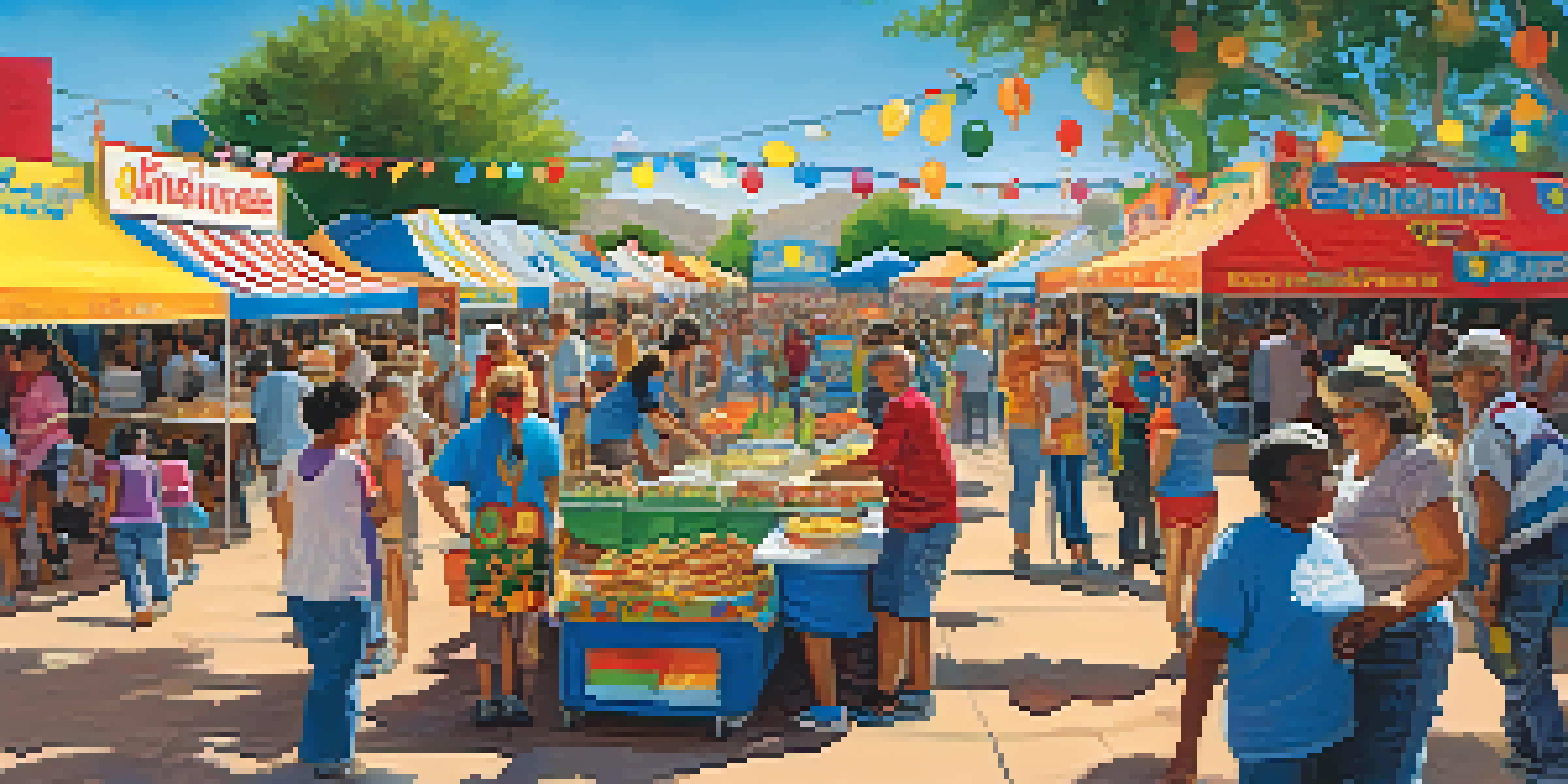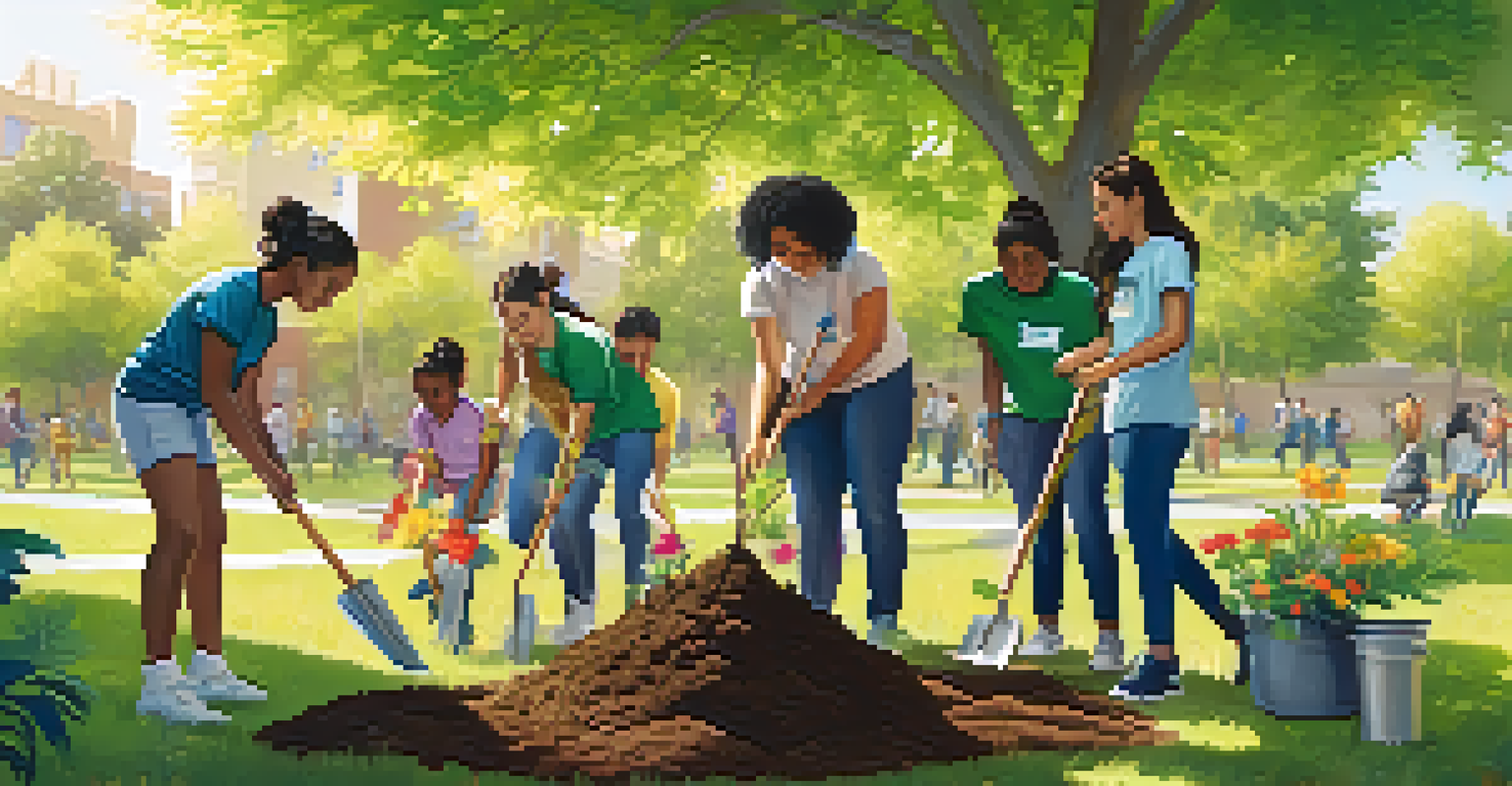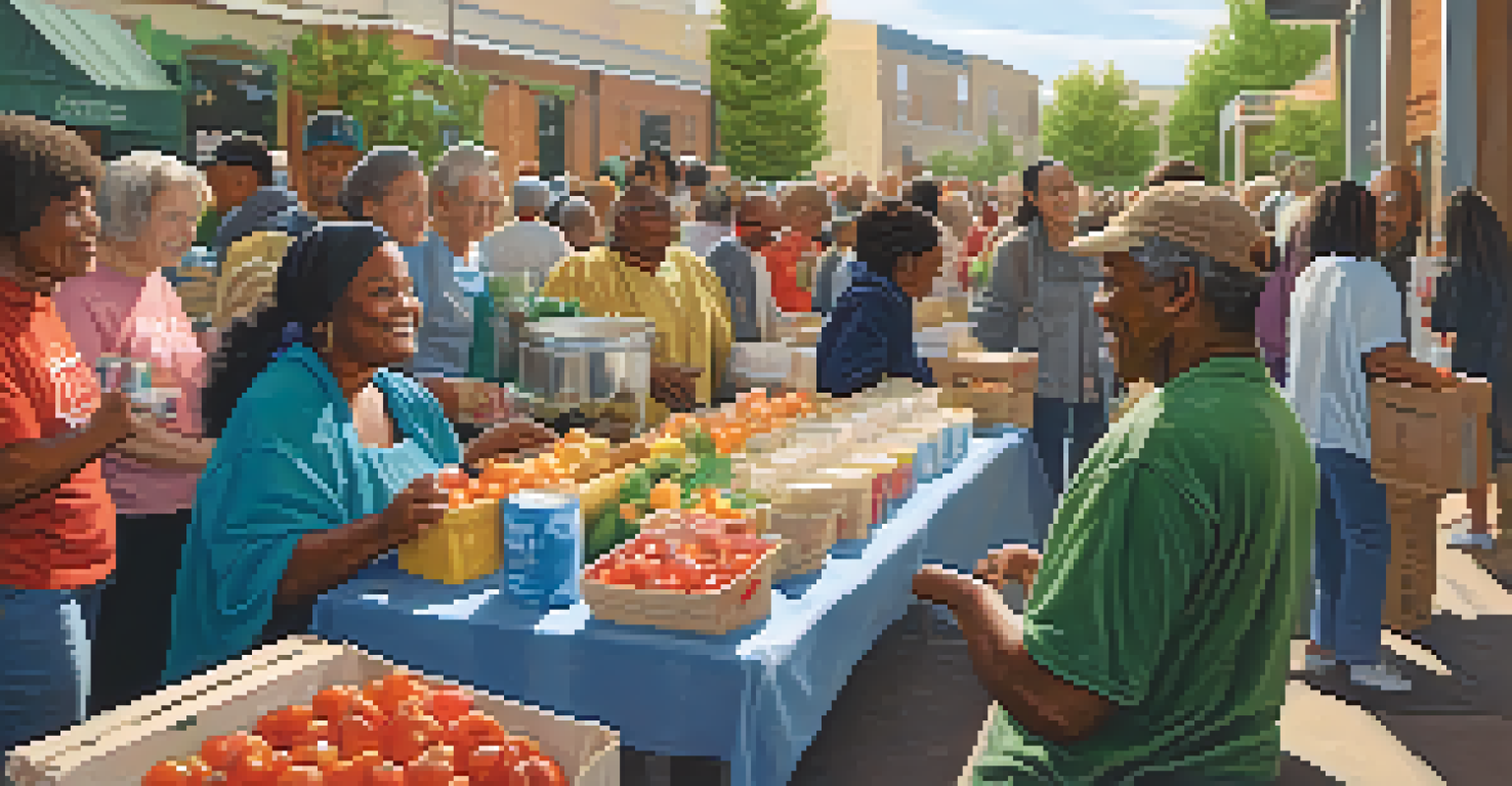Cultural Influences on Volunteerism in Arizona Communities

Diverse Cultures Foster Unique Volunteer Opportunities
Arizona is a melting pot of cultures, including Native American, Hispanic, and Anglo communities. Each group brings its own traditions and values, which greatly influence how they engage in volunteerism. For instance, many Hispanic communities emphasize family and community ties, often organizing collective volunteer efforts that strengthen these bonds.
Volunteering is at the very core of being a human. No one has made it through life without someone else’s help.
In contrast, Native American cultures may focus on stewardship of the land, leading volunteers to participate in environmental conservation projects. This diversity not only enriches volunteer opportunities but also promotes a deeper understanding among community members. By embracing these varied cultural perspectives, Arizona communities create a more inclusive environment for volunteerism.
Ultimately, the unique contributions of each culture help shape the volunteer landscape. Understanding these influences can lead to more effective collaboration and community-building efforts, ensuring that everyone has a voice in the process.
Historical Context of Volunteerism in Arizona
The history of volunteerism in Arizona is deeply intertwined with its cultural roots. From early Native American practices of communal support to the establishment of charitable organizations in the 20th century, the spirit of giving has always been present. Historical events, such as the Great Depression, spurred community members to come together to support one another, laying the groundwork for modern volunteer efforts.

As waves of immigrants settled in Arizona, their unique customs and traditions influenced local volunteerism. These groups not only brought their own ideas about community service but also established organizations that catered to their specific needs. This rich historical tapestry has created a dynamic environment where volunteerism continues to thrive.
Cultural Diversity Enriches Volunteerism
Arizona's varied cultural backgrounds enhance volunteer opportunities by fostering unique perspectives and community engagement.
By understanding this historical context, current volunteers can appreciate the legacy of service that has shaped their communities. This appreciation can inspire more engagement and a sense of responsibility toward continuing the tradition of helping others.
The Role of Education in Promoting Volunteerism
Education plays a pivotal role in fostering a culture of volunteerism in Arizona. Schools and universities often encourage students to participate in community service as part of their curricula. This emphasis on service not only instills a sense of responsibility but also exposes students to various cultural perspectives.
The best way to find yourself is to lose yourself in the service of others.
Many educational institutions partner with local organizations to provide volunteer opportunities, allowing students to engage with their communities. These experiences can spark a lifelong commitment to service, as students learn the value of giving back and the impact it can have on their neighborhoods.
Additionally, educational programs that focus on cultural sensitivity can enhance understanding among diverse groups. By promoting collaboration and communication, these initiatives pave the way for more meaningful volunteer efforts that reflect the community's values and needs.
Cultural Events as Catalysts for Volunteer Engagement
Cultural events in Arizona, such as festivals and fairs, serve as powerful catalysts for volunteer engagement. These gatherings showcase the rich diversity of the community and often rely on volunteer support for their success. By participating, individuals can connect with others who share similar cultural backgrounds and values.
Moreover, these events provide an excellent platform for promoting volunteer opportunities. Organizations can showcase their missions, recruit volunteers, and educate attendees about the various ways to get involved. The festive atmosphere encourages people to step out of their comfort zones and consider volunteering as a way to contribute.
Education Promotes Volunteer Engagement
Schools and universities play a crucial role in instilling a culture of service among students, encouraging lifelong commitment to volunteering.
Ultimately, cultural events not only celebrate diversity but also foster a sense of belonging. This connection can motivate individuals to engage in volunteerism beyond the event, creating a ripple effect of community involvement.
The Impact of Faith-Based Organizations on Volunteerism
In Arizona, faith-based organizations play a significant role in shaping volunteerism. Many religious communities emphasize service as a core tenet of their beliefs, inspiring members to engage in various charitable activities. This focus on helping others can lead to widespread community support and involvement.
These organizations often collaborate with local nonprofits to address pressing social issues, such as hunger, homelessness, and education. By pooling resources and volunteers, they create a powerful network that amplifies their impact on the community. The shared values within these faith groups foster a sense of unity and purpose, motivating people to take action.
Furthermore, faith-based organizations can bridge cultural divides by bringing together individuals from different backgrounds. Through shared service projects, they promote understanding and cooperation, enriching the volunteer experience for all involved.
Social Media's Role in Enhancing Volunteerism
Social media has revolutionized the way volunteer opportunities are promoted and engaged with in Arizona. Platforms like Facebook and Instagram allow organizations to reach a broader audience, sharing their missions and initiatives with potential volunteers. This exposure can attract individuals who might not have been aware of local needs or opportunities.
Additionally, social media fosters a sense of community among volunteers. Groups can share their experiences, celebrate achievements, and encourage one another, creating a supportive network. This online engagement can be particularly appealing to younger generations who are more inclined to connect through digital means.
Social Media Connects Volunteers
Social media platforms enhance volunteerism by broadening outreach and creating supportive online communities among potential volunteers.
Ultimately, social media serves as a bridge, connecting individuals with shared interests and values. By leveraging these platforms, organizations can enhance their volunteer recruitment efforts and build a more engaged community.
Challenges in Volunteerism Across Cultures
While cultural diversity enhances volunteerism, it also presents challenges. Misunderstandings and stereotypes can arise when individuals from different backgrounds come together. These barriers may hinder collaboration and limit the effectiveness of volunteer efforts.
To overcome these challenges, it's essential to promote cultural awareness and sensitivity. Organizations can offer training programs that educate volunteers about different cultural practices and beliefs, fostering a more inclusive environment. By encouraging open communication, they can help dispel myths and build trust among participants.

Addressing these challenges is crucial for ensuring that volunteerism remains a positive experience for all involved. When volunteers feel respected and valued, they are more likely to engage wholeheartedly, leading to meaningful contributions to their communities.